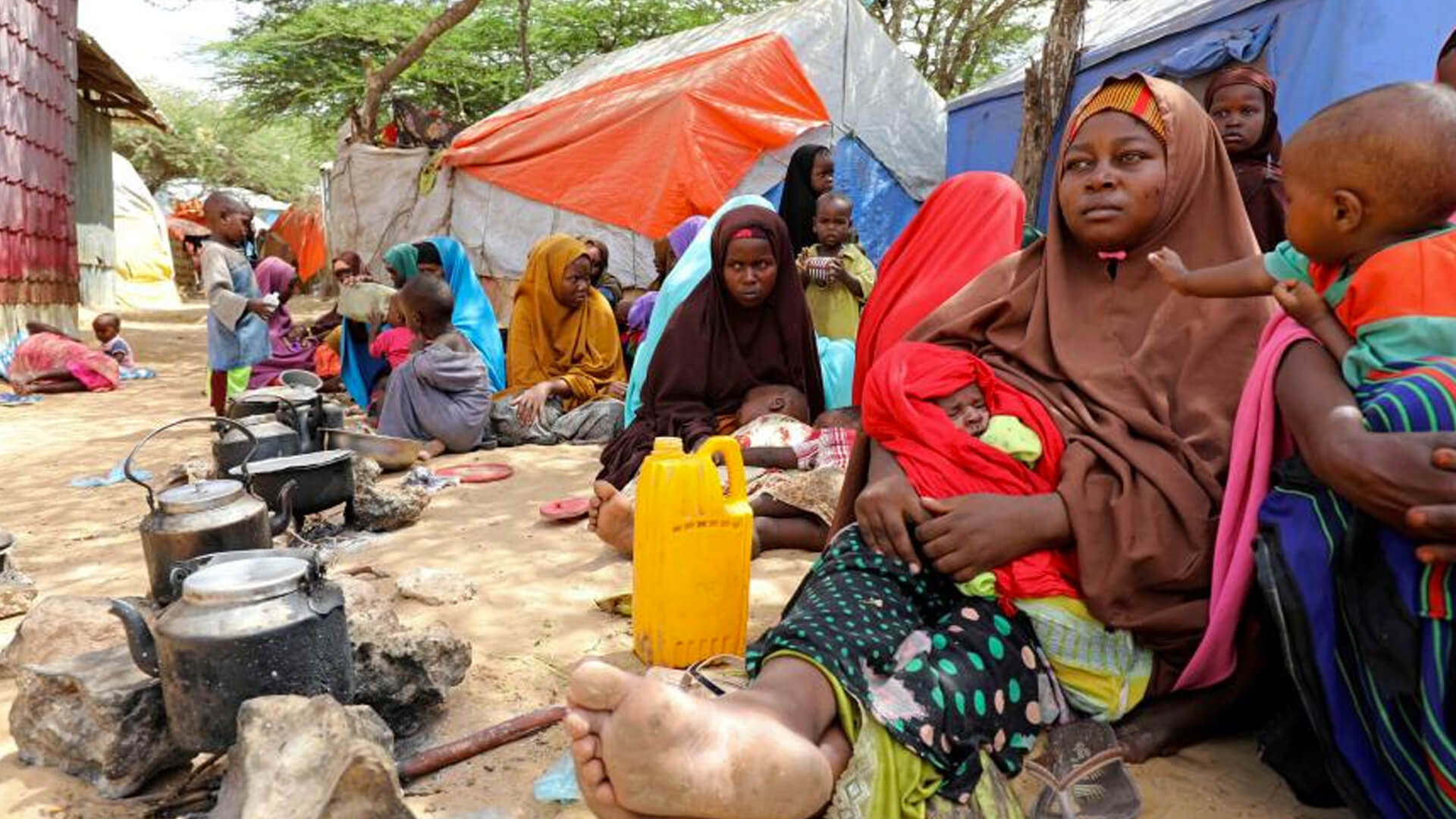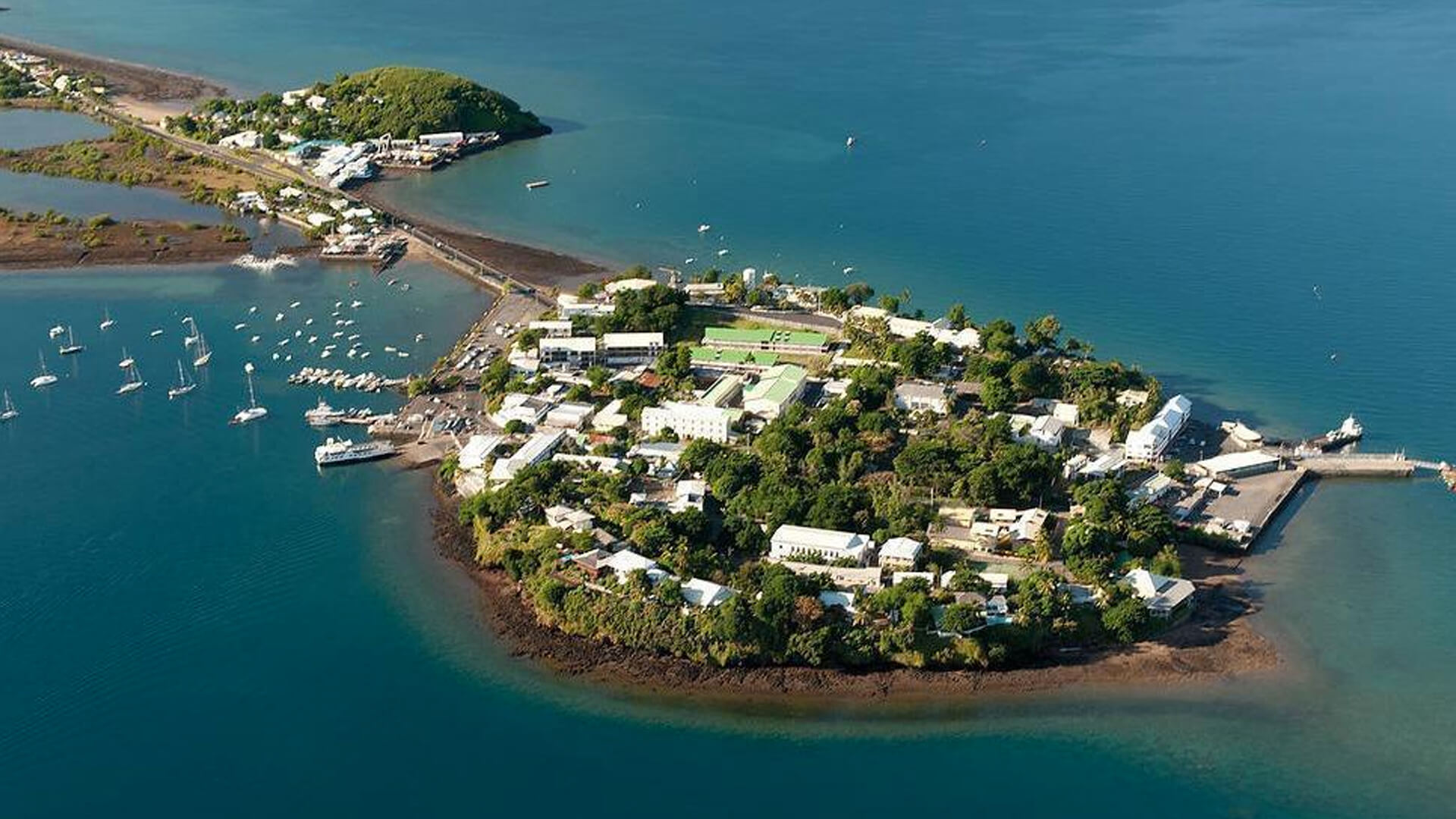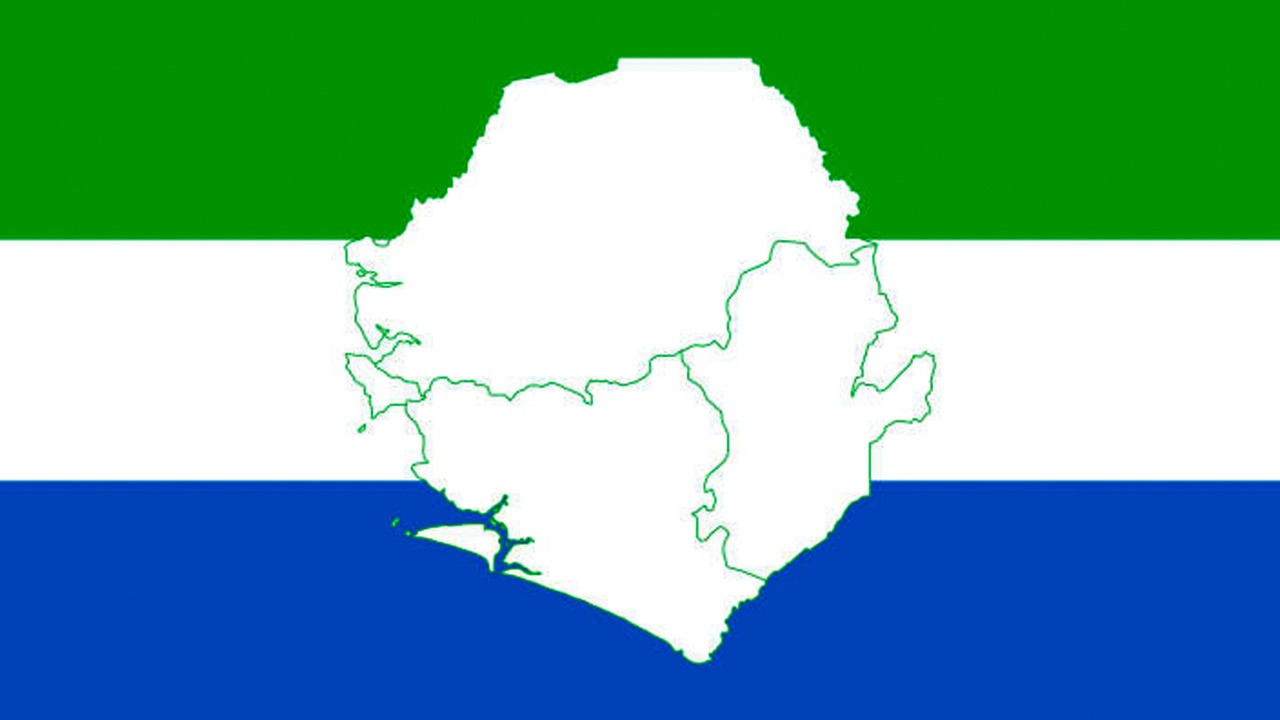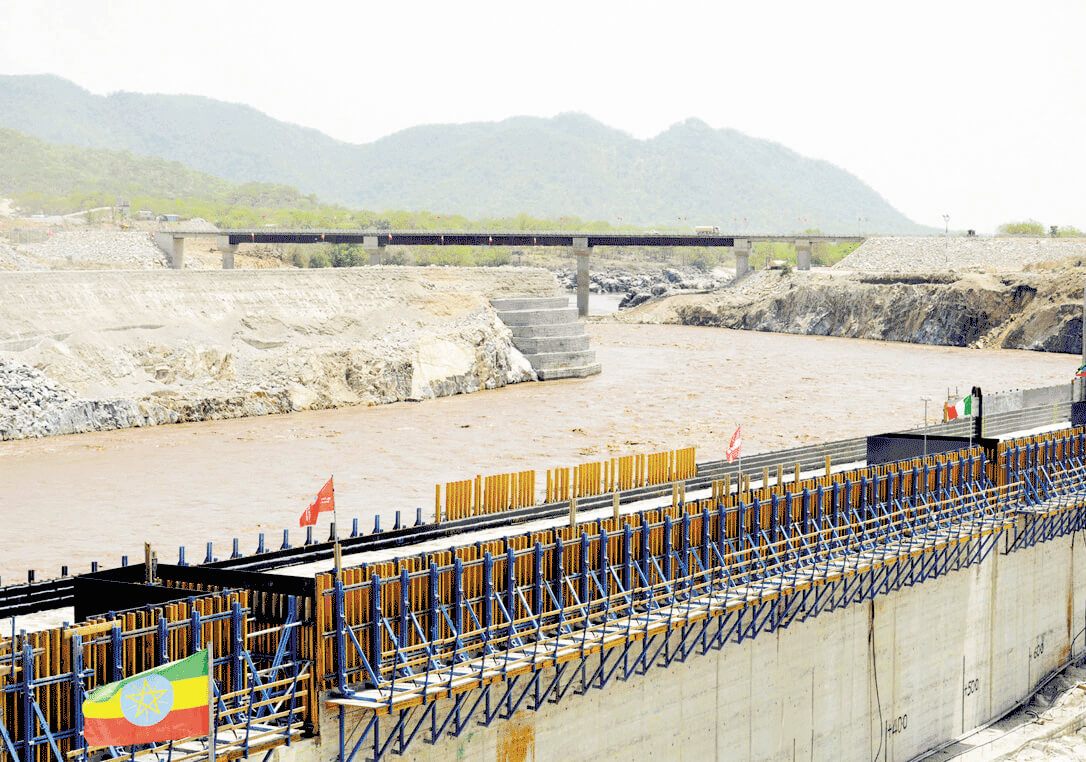Somalia: Obstacles and challenges to organizing the first direct elections in half a century
Many Somalis are waiting for the year 2021 to be the point of radical change towards security, stability and sustainable development With the approaching date of the first parliamentary elections of its kind approaching since 1967, when we have almost seven months separated from this electoral entitlement, which is the most prominent event of this year, the signing of President Muhammad Abdullah Faramago on the election law, after passing it in Parliament, paved the way for organizing elections in the country through Direct popular vote, but great doubts surround the country’s ability to do this benefit.
The presidential election law stipulates that members of Parliament and the Senate are elected by direct popular vote, while members of Parliament elect the president of the country in accordance with the country’s interim constitution, and the importance of the law lies in that it folds the page of the tribal quotas system, which has been a criterion for power sharing for nearly twenty years, which is A criterion based on unfair grounds, some tribes marginalized their right to political representation. As it was assigned to the joint parliamentary committee charged with completing the procedures for the national elections, according to what the Somali National News Agency reported, “Preparing” four axes in the national election law, namely: _ Women’s share in Parliament And the constituencies that will be divided among members of Parliament In addition to the capital, Mogadishu
And how to elect members of parliament from the northern provinces of the country. The mandate of the current parliament ends in the People’s and Senate’s end of next December. Article thirteen of the new election law stipulates that the legislative elections begin one month before the end of the parliament’s term, and that the electoral committee announce the timetable 180 days before this date, ie the end of this month. Whereas, the tenth article of the law stipulates that the electoral system be a direct popular vote in accordance with the “majority” system Frist past the post voting Acronym known as “FPTP
However, there are no signs on the horizon that indicate the Federal Government’s commitment to its pledges to organize a direct popular vote at the end of this year. Rather, there are indications of the desire to postpone, especially since Article 53 of the new election law gives Parliament the power to decide on elections in the event that an announcement is made. The electoral commission is unable to organize elections on time, which makes the door open to the possibility of postponement or the occurrence of a constitutional vacuum.
Despite this ambiguity surrounding the fate of the elections, some sources suggest that the elections will take place at the end of this year or by next year. Because there are two main parties in the Somali political equation that reject the postponement or extension and insist that the elections be held on time: the opposition forces, and the international community, which sees the elections as crucial to political stability in Somalia. Also, another important party (the states of Puntland and Gopaland) has its own status. They cut their relations with the federal government and refuse any cooperation with it on the elections unless its political stance towards them changes
The signing of President Muhammad Abdullah Faramago on the election law on February 20 did not resolve the controversy over the electoral model, and that organizing a popular vote enjoys the support of all member states, the political opposition, and civil society, as stressed by the Security Council in its last report on the state of Somalia during the remainder of The president’s term is difficult, if not impossible, due to the absence of a number of key groups to organize credible elections characterized by transparency, inclusiveness and honest competition, such as: Voter registration process This is not an easy job. No one knows the population of Somalia. The last official census was conducted in February 1975.
Election Security. Security is the biggest challenge to holding general elections, because the security situation throughout Somalia is fragile and volatile. Al-Shabaab is still capable of launching attacks against the interests and installations of the state. It attacked weeks ago with missiles for the second time in less than a month at the headquarters of the African Union Peacekeeping Mission (AMISOM) in Mogadishu.
The problem of electoral district boundaries. There may be elections in 275 individual constituencies throughout the country, and so far it has not been agreed to determine these constituencies
The problem of the seats in the northern regions (Somaliland) and how they will represent the people of Banadir, an administrative region that includes the capital, Mogadishu
How to guarantee a woman’s 30% share.
Mechanisms related to electoral complaints and disputes and ways to decide them
The time factor is also another challenge. There are less than seven months left of the legislative elections
Add the above to the fact that the election law approved by Parliament does not have the approval of all political entities and tribal constituents in Somalia, making the conduct of direct popular polls in many safe areas such as Gopaland and Puntland a complex task.
The outside bet and its effect on the electoral scene
The upcoming Somali elections receive a lot of attention from a number of countries that seek to preserve their interests in Somalia and the region. Among the most prominent of these countries are the United States of America, Norway, Turkey, Kenya, Ethiopia, Britain, Saudi Arabia, the United Arab Emirates, Egypt, and Qatar.
United States of America
It seems that she does not care about who will be the next president as much as she is interested in political stability and does not like the current political situation due to what constitutes a threat to her interests and thus is trying in one way or another to make a political change regardless of who drives this change
Norway
Interested in the oil and gas file in Somalia, and its relations during the recent years with the government of Hassan Ali Khairy, who holds its nationality, have witnessed a remarkable development and played a major role in the file of exempting Somalia from external debt and may have a role and influence in the upcoming elections.
Britain
It is pushing for elections to be held on time and interested in the rise of new powers to power. During the past few days, the British Ambassador to Mogadishu Ben Fender held a meeting with a number of candidates for the presidential elections and assured them that he was pushing for the elections to be held on time in order to avoid a political turmoil that undermined the achievements made in the past years.
Turkey
Turkey penetrated the Somali political system and had influence in all previous governments, and that its interests are greater than betting one party, as its Ambassador to Somalia Ghalib Yilmaz hinted, and therefore is not ready to support one party and believes that every elected president needs it and is forced to maintain a good relationship with it.
Saudi Arabia
It is considered a friendly country and its interest is not focused only on what is happening inside Somalia, but also seeks to guarantee its interests in the Horn of Africa through Somalia, and therefore it is expected to have a remarkable role in the upcoming elections due to the geopolitical shifts witnessed in the region. Relations between the Kingdom and the current government are not at its best Riyadh, its rival Qatar and Turkey, may win the bet of dealing with the new government
United Arab Emirates
She has a long relationship with Somalia and was one of the most supportive countries for her in the past years and she did not withdraw from the Somali scene throughout that period, but her relations with the current government headed by Abdullah farmajo are not well, so she is interested in improving her relations with Somalia regardless of who the president will be. Next
Qatar
It is one of the most supportive countries of the current government and has good relations with Mogadishu, and therefore it is expected that it will put all its weight in order to re-elect the current President, Mohamed Abdullah Faramago, or to elect Prime Minister Hassan Ali Khairi.
Kenya
Kenya’s relations with Somalia have worsened due to the maritime dispute file currently pending before the International Court in The Hague and therefore looking for a candidate that can negotiate with him, and this will be difficult because its role in Somalia is limited and it does not have much influence except for the Gopaland file.
Ethiopia
It is one of the most influential countries in the Somali political scene and that the Ethiopian Prime Minister Abi Ahmed maintains personal relations with President Vermago and therefore is expected to work to enhance his chances of winning elections and relieving external pressure from him.
Presidential race and the chances of the candidates
A large number of politicians have announced their intention to run in the presidential elections, and it is expected in the coming months that others will officially announce their candidacy, but a few of them are those who have advanced opportunities, among whom are the current President Muhammad Abdullah Faramago, and Prime Minister Hassan Ali Khairi in the event that His candidacy was announced, former President of Jalamdagh Province Abdul Karim Gouled, former President Sharif Sheikh Ahmed, former President Hassan Sheikh Mahmoud, former Minister of Information Taher Gili, former Prime Minister Omar Abdel Rashid, former Minister and seasoned politician Abdel Rahman Abdel Shakour.
President Muhammad Abdullah farmago
Despite President Muhammad Abdullah appearing as the strongest candidate for the upcoming elections and his success in efforts to exempt Somalia from foreign debt. However, the attempt to re-elect him will be difficult and he will face fierce competition due to one important thing, which is that a Somali president has never won a second term besides the following considerations:
President fermago’s popularity has declined in the last two years, largely due to political differences with regional administrations and increased insecurity. During his presidency, Mogadishu witnessed some of the most violent al-Qaeda affiliated al-Shabaab attacks, such as the fiercest bombing in the country’s history
The Zobi bombing that killed more than 500 people and the XControl bombing that killed tens of people, mostly students and simple workers
Some of the major tribes in Somalia are extremely restless because of their policies towards wealth and power distribution
Tense relations with some neighboring countries and regional powers
His alliance with Ethiopia, the “traditional enemy” of the Somalis, and his decision to deport Musa Qalb Tugah, the leader of the Ogaden Liberation Front, to Ethiopia, and this sparked widespread popular anger.
Due to the nature of the Somali elections and the participants ’commitment to tribal balance, the position of the president in the coming period will be for the non-clan of President Vermago
There are expectations that Prime Minister Hassan Ali Khairi will decide to run in the upcoming elections, and this step may negatively affect the chances and chances of the president.
Hassan Ali Khairi
The current Prime Minister, Hassan Ali Khairi, has not yet formally announced his candidacy for the upcoming elections. In the event of running, he will be among the most fortunate candidates to win the elections.
strength point:
His success in avoiding any clash with President Vermago, as he will be the first prime minister since the state’s collapse in 1991, ending his full term without differences with the presidency.
His balanced relations with regional heads of state, including the states of Pont Land and Jopaland, which have bad relations with the central government.
His tribal affiliation, as the clan from which he descended seeks to obtain the position of president during this period
Weak points
The failure of the Prime Minister to run as well as the President who appointed him in the history of the Somali elections.
His government’s failures, particularly in the political and security fields.
His closeness to President Vermajo and his work with him, and this would reduce his opportunity regarding _ getting the support of the federal heads of state.
Aversion to political elites from his character, which is characterized by “intensity and militancy”, which reduces the chances of his political alliances, so that ambiguity remains around how he moved from the camp of former President Hassan Sheikh Mahmoud – who was handed over to him to manage his re-election campaign in 2016 AD – to the camp of President Mohamed Vermago.
His tense relations with some of the power centers in the capital Mogadishu, tribal sheikhs and businessmen.
Abdul Karim Hussein Gouled
The former Minister of the Interior and National Security, and the former President of the Galmagd Region, is a well-known politician with a wide relationship with the political, educational and cultural elites and has a high score and praiseworthy achievements.
strength point
His accomplishments during his assumption of the federal ministries of security and the interior, and his presidency of Giladdagh and his long career in the humanitarian and service fields. When he was Minister of Security, the man was able to rebuild the Ministry and its structure professionally and with high efficiency. He was head of the delegation of the federal government in the negotiations with the Somaliland region held in Turkey and Djibouti. These negotiations were a turning point in the path of dialogue with the Somaliland region. He achieved similar successes when he was an active member of civil society institutions and head of the National Education Association in Somalia. He participated in structuring the private education sector and building new schools and groups, and the curricula of the association were followed during his reign in cooperation with the Islamic Bank and the World Assembly of Youth and in coordination with the government
Being the only strong candidate after the previous presidents, which would qualify him to be the new and alternative face of them, it is worth noting here that it is the first time that Abdel-Karim is running for this position.
He belongs to one of the clans that has not been in power since 2004 and enjoys his support and support.
His extensive relations with all political entities and societal components and he enjoys the support of businessmen who have great influence in the political process in the country.
His strong relationship with all federal heads of state
His strong and balanced relations with all countries interested in Somalia’s affairs.
Weak points
Candidate Abdel-Karim Gouled has a great opportunity to win the upcoming elections, but the biggest challenge he faces is facing strong competition from three former presidents, and the current regime’s fear of the candidate may cause him some pressure and harassment.
Hassan Sheikh Mahmoud
An academic who gained extensive political experience during the four years he spent in government (2012-2017) and has great ambition and works seriously to return to the presidential palace that he lost in 2017 because of what his supporters describe as unfairly close and stabbed from behind, but the man chases him for the curse of the former president “And his great failures and in all fields during his rule, and therefore the chances of being elected a second time as President of Somalia are slim, in addition to his loss in the previous elections while he is in power.
Sharif Sheikh Ahmed
He was the head of the Islamic Courts that succeeded in 2006 in restoring security and stability. He was elected president in 2009 and led him in one of the most difficult periods. He managed to manage the famine crisis that struck the country in 2011 and the threats of the youth movement that was controlling large areas of the capital Mogadishu, which earned him interest in the hearts of the general public and politicians alike, and his fortunes were advanced a year ago, but his recent statements on some complex political issues It underestimated its value and led to a significant return to popularity. Meanwhile, the government-affiliated media machine worked
He is somewhat present in his portrayal as “tribal leader” and “warlord”, which increases doubts and reservations about him by senior politicians and clan leaders. It should be noted that the upcoming elections will be the third attempt to run in the presidential elections, as it failed in the previous two times.
Taher Mahmoud Geely:
The former Minister of Information held the position of Somali Ambassador to the Kingdom of Saudi Arabia. My generation is considered an important political figure in the Somali political scene and a popular son among Somali intellectuals elites
Omar Abdul Rashid Sharmaki
The son of ex-Somali president Abdur Rashid Sharmarke, he held the position of prime minister twice in 2009 and 2016 and is considered one of the prominent and influential figures in the Somali political scene and has the chances of winning the post of Somali President despite his loss in the 2017 presidential elections.
Abdul Rahman Abdul Shakur
A well-known politician and former minister, who was allied with President Vermago in the 2016 elections but turned against him and became one of the fiercest opponents of President Vermago after his house was raided by the intelligence forces and arrested in December 2017. Candidate Abd al-Rahman Abd al-Shakur has reasonable chances, but his excessive love for dealing with all issues, whether political, religious and social, and his permanent refusal to ally with other political forces can negatively affect his chances in the upcoming presidential elections. This is that his relationship with the Kenyan government and his role in signing the Memorandum of Understanding between Somalia and Kenya in 2009, which stipulated an end to the conflict between the two countries over the maritime borders through negotiations, is one of his most important weaknesses and would reduce his chances of winning the upcoming elections.
Abdul Qadir Ousbli
A deputy in the federal parliament and a well-known businessman who is a difficult figure in the Somali political scene, and enjoys unyielding political will. He ran for this position more than once and he still pursues this dream and has reasonable chances
Previous electoral experiences
Somalia had practiced the democratic experiment almost nine years after attaining independence in 1960, and 1967 was the last time the people voted democratically in elections, and a few days after the assassination of President Abdul Rashid Ali Sharmarke in 1969, a military coup led by General Mohamed Siad Barre , Which disrupted the constitution and democratic experiment.
The military rule lasted 21 years before being overthrown by armed factions in 1991, and then the country descended into a bloody civil war, and international and regional initiatives succeeded in holding conciliatory conferences for the Somali factions, which finally contributed from the year 2000 in forming transitional governments until one year. 2012, when Somalia managed to exit the transitional period and organized two elections, but according to the tribal quotas system as a temporary solution.
Conclusion
The legislative and presidential elections in Somalia will be held on time, despite the challenges and obstacles, and the electoral system will not differ from previous electoral models, and the presidential election battle will be fierce, and there will be intense competition between President Vermajo and a number of other candidates, making the door open to all possibilities. In this context, it must be noted that the most important factor that may decide the battle is the role of the countries concerned with Somali affairs. However, the positions of these countries are not united and fluctuating between countries interested in the re-election of President farmajo, such as Qatar, and others looking to reach new faces for the presidential palace,
“Villa somalia” in Mogadishu.



